When a guest interview goes right, it feels exhilarating and calming all at the same time. Podcast hosts, you know this feeling: The conversation flows, you’re laughing and crying together, the chemistry is real, and you know you’re in for an amazing episode.
When an interview goes off the tracks, though, awkwardness can lead to panic. What question should you ask next? Is the guest happy? How can you get back to the good stuff? So many factors can cause turbulence — a dicey topic, a personal question, nerves, equipment malfunctions, even disagreements.
To help podcasters of all experience levels recalibrate awkward interviews, we asked six experienced podcast hosts for their stories and strategies. They offer personal accounts of guest shutdowns, embarrassing chair noises, total flops, touchy subjects, and what they learned from it all.
The truth is, just like in day-to-day life, not all interactions are comfortable. In a grocery store, you can just walk away. But what do you do when you’re recording?
Luckily, the fun doesn't stop here: Part 2 of The Emergency Guide keeps the good (and bad) times rolling with more stories from brave hosts.

Laugh It Off
When awkwardness comes up, and it’s light by nature, take a page from the comedian’s handbook — call it out, laugh it off, and allow it to bring you and your guest closer.
“Early on, when I first started Brains Byte Back, we recorded from our office, which has chairs that are really hit or miss. Sometimes they are nice and quiet, while others make the strangest sounds,” tells host Sam Brake Guia. “I started a call with a guest and everything was running smoothly as expected. I took a moment to adjust my chair, and it let out a noise that sounded like the loudest fart. We were just using audio at the time, so the guest couldn't see any of this, all they heard was the sound. Needless to say, they started laughing.”
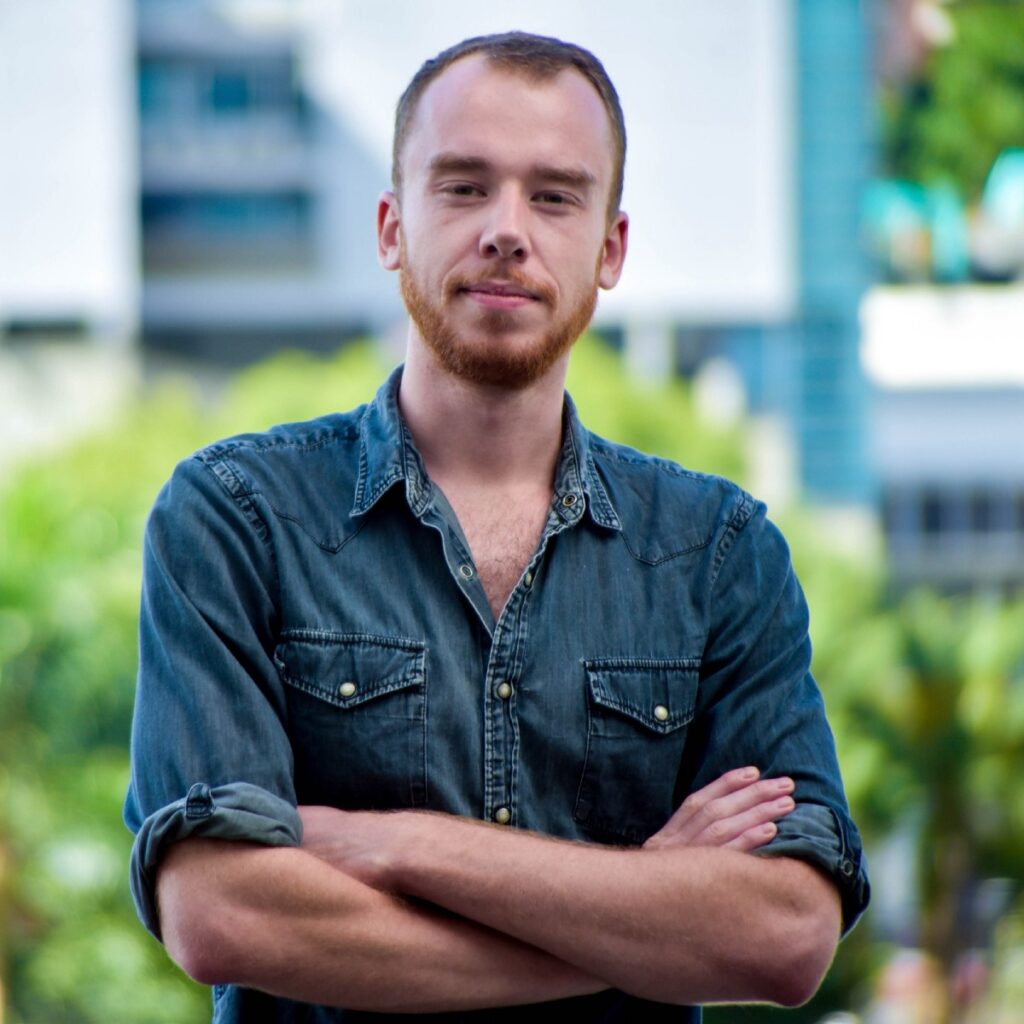
I thought, OK, I have two options here: Turn around and insist it is not what they think, or just go with it and have a laugh because clearly, they found it funny.
—Sam Brake Guia, Brains Byte Back
He continues, “I frantically scrambled to explain what had happened, but the guest immediately laughed and said ‘No worries.’ I thought, OK, I have two options here: Turn around and insist it is not what they think, or just go with it and have a laugh because clearly, they found it funny. I went for the latter and said something along the lines of, ‘I should make better use of my mute mic button in the future.’ We both laughed and it really did wonders for building up a rapport.”
According to Guia, the rest of the interview went well. In fact, he suspects that little slip-up probably helped the conversation overall. However, to this day, he always double-checks the chair he uses for interviews.
After three and a half years and over 180 interviews, Dyking Out co-host Carolyn Bergier leans into the awkwardness. “As comedians, thankfully, we are usually able to use humor to defuse an uncomfortable moment,” she points out. “One great lesson from being a stand-up comedian is that when you feel like you're bombing, calling it out can break the tension, let you take a breath, and then move past the moment.”
Clemmie Telford, the creator and host of Honestly, has a similar approach. “My coping strategy for awkward moments is to call them out for what they are. Saying ‘This is awkward’ either lifts the mood or makes it worse! It’s a gamble that I usually take.”

Let It Go
Other times, it’s nearly impossible to get around the stickiness of uncomfortable moments. Do you end the conversation? Take a break from the interview? Ask the guest to re-record?

“Don't feel like you have to put out every episode,” Bergier emphasizes. “We've had episodes where the guests weren’t at their best and regret putting out those episodes. Now we just make the call to can them if that happens.” You have the power to make big decisions. If need be, you can scrap an interview that may reflect poorly on either the guest or your show.
You have the power to make big decisions. If need be, you can scrap an interview that may reflect poorly on either the guest or your show.
Doug Fraser, the host of NPR’s What We Do, recalls an interview that was doomed from the start. “I was interviewing a well-known comedian once and from the moment he got on the line I could tell he didn't want to be there,” Fraser says. “He was giving short, shallow answers and looked like he was exhausted. So I tried to increase my energy to hopefully kick in his mirror neurons, which would (hopefully) alert him to match my energy level. The next 30 minutes were the worst interview I've ever had.”
“In the end, there were two sound bytes for a total of 15 seconds that were salvageable,” Fraser admits. “I was partly to blame, no doubt. But given how he came into the interview, I don't believe that there was a way I could turn things around. I was trying to build a house even though I saw a meteor heading right for it.”
Even if the full interview doesn’t make it to your audience, it’s still a learning experience for both you and your guest. Plus, a few sound bytes can still go a long way for promotion and marketing materials.

All Hail Post-Production
Ah, yes. The power of editing. Podcasters have a not-so-secret tool to fix awkwardness — totally removing it via post-production. But how much awkwardness should you edit out? Is it ever worth keeping prickly moments? According to our featured hosts, the answer is yes. Here’s how they determine what stays and what’s cut.
Keep the awkwardness when it adds authenticity to your show. A’shanti F. Gholar, the founder and host of The Brown Girls Guide to Politics, recommends purposeful editing. “We keep as much awkwardness as possible to show the realness of the conversation,” she says. “I want people to see that I am human, the guest is human, and there are weird moments when you are talking to someone you really don’t know well. It is a big part of keeping the podcast and conversation authentic.”
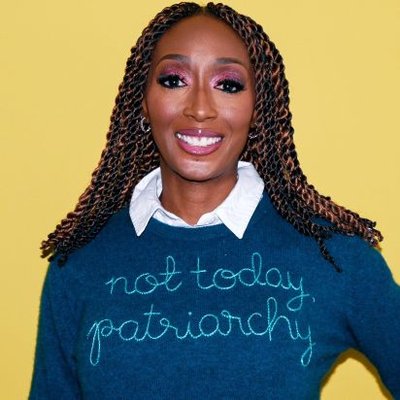
I want people to see that I am human, the guest is human, and there are weird moments when you are talking to someone you really don’t know well.
—A’shanti F. Gholar, The Brown Girls Guide to Politics
Keep the awkwardness if it adds to the narrative of your guest. “If the awkwardness serves the narrative, then there’s no limit,” says Fraser. As a host, sometimes you have to take one for the team. “An example was when Bob Bergen (the voice of Porky Pig) tried to teach me to talk like Porky. I felt so uncomfortable because I just wasn't getting it right. I think he tried it three different ways before we moved on. I felt like an absolute fool. But that awkwardness helped show just how good Bob was at his job. He made it look easy, but an amateur like me just kept stumbling.”
Keep the awkwardness if it’s an important topic. “If it’s funny or important (like having the conversation about abuse in relationships), I’ll keep it in,” says Bergier. “We recently had an episode that was super awkward overall, and even with heavy editing, our listeners still noticed and commented on it. It was clear the awkwardness came from the guests, but I did leave in a few moments where I tried defusing things with humor or by calling out the awkwardness.”
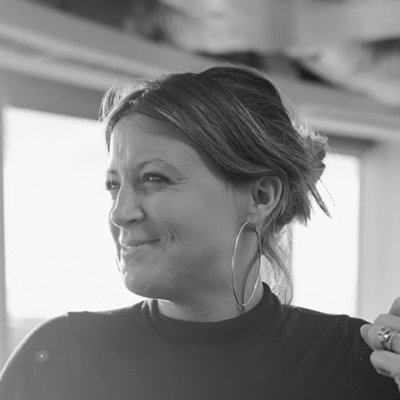
My aim is to keep it as real as possible. That said, if a guest feels strongly that they want something removed, we’d be sure to honour that. I don’t want to leave anyone feeling uncomfortable.
—Clemmie Telford, Honestly
Keep the awkwardness unless your guest isn’t okay with it. Though Telford’s podcast focuses on taboo topics, authenticity isn’t worth a guest’s distress. “Editing is minimal on Honestly,” she says. “My aim is to keep it as real as possible. That said, if a guest feels strongly that they want something removed, we’d be sure to honour that. I don’t want to leave anyone feeling uncomfortable.”
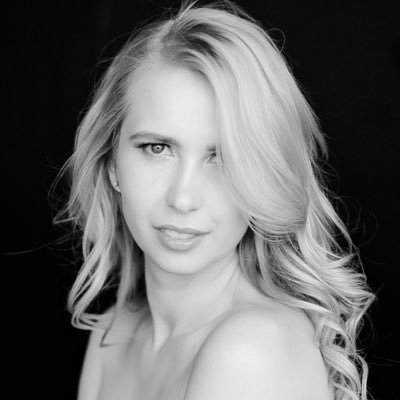
Remove the awkwardness if it benefits the overall tone for listeners. Alice Vaughn, co-host and producer of Two Girls One Mic, edits final episodes partially due to her podcast’s subject matter. “Truthfully, adult work and the people within the community are stigmatized, and I didn't want to provide a version of the show where people weaponized it as a portrayal of a ‘dumb pornstar,’” she explains. “At the end of the day you can always get back on track or discuss something else. Everything can be cleaned up in post.”
At the end of the day you can always get back on track or discuss something else. Everything can be cleaned up in post.
—Alice Vaughn, Two Girls One Mic

Take Notes And Learn
So you got through it. You did the interview, edited the episode, and published or scrapped it. Now it’s time to reflect. What did you learn? What can you do differently next time? All of the stories in this piece are examples of how our featured hosts learned from awkward interviews to become better podcasters, and, ultimately, communicators. Here are their lessons in a nutshell.
“If everything was easy, I don't think we'd ever change,” says Fraser. “Awkward interview moments have helped me think on my feet and adapt in the spur of the moment. The more I experience, the better I get at adapting, and the better I understand the delicate art of getting a complete stranger to share their authentic self.”
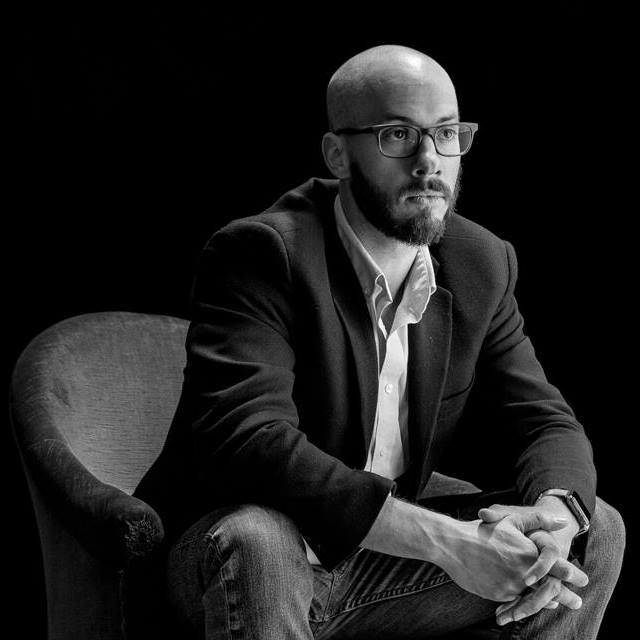
I've found starting at a 40/60 split between professional and casual is a great way to gauge the room and then adapt my relationship mindset from there.
—Doug Fraser, What We Do
He continues, “One thing I've learned is the importance of the proper relationship mindset. By that I mean when I’m in an interview, am I carrying a familiar tone like I'm old friends with this person to get them to feel relaxed? Or will acting like an old friend feel fake to them? Would it be better to take a 20/80 split for a casual/professional tone? Everyone is different and you'll want to adapt based on their personality and current mood. I've found starting at a 40/60 split between professional and casual is a great way to gauge the room and then adapt my relationship mindset from there.”
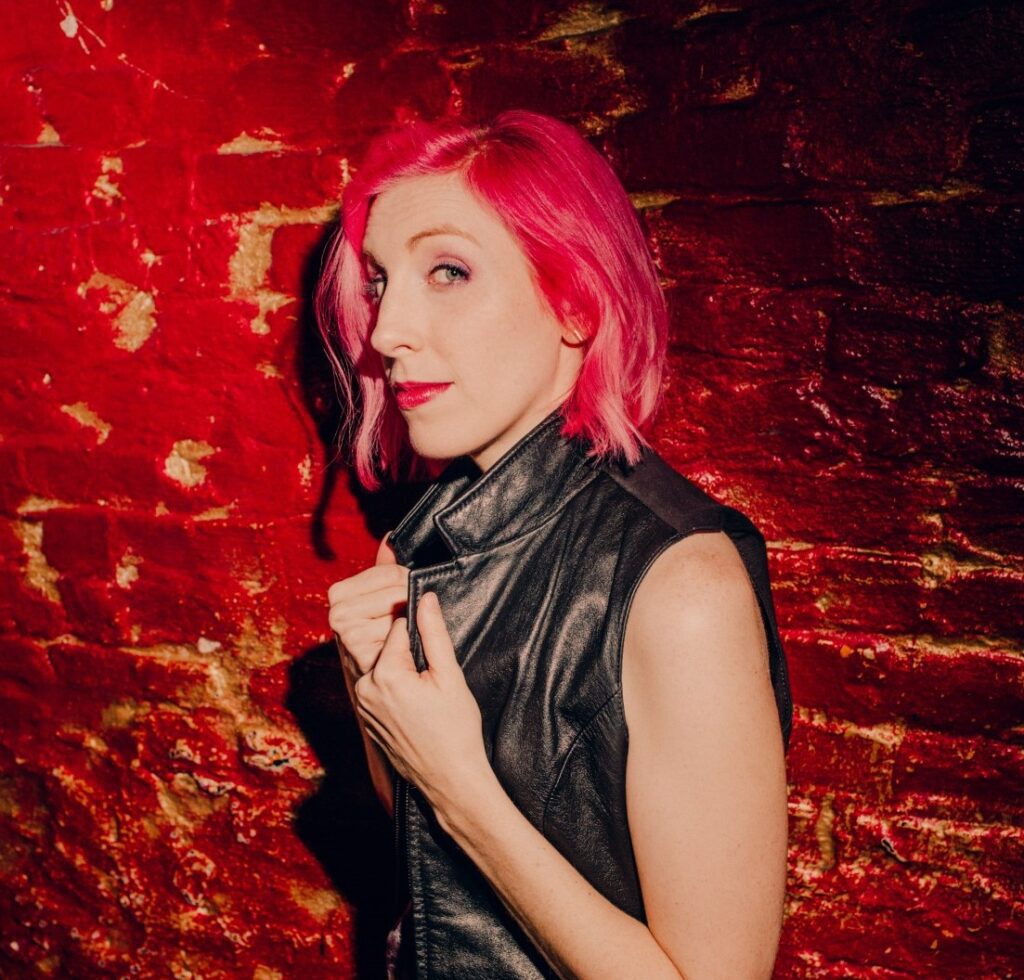
Gholar has strengthened her flexibility in response to twists and turns. “You gotta go with the flow. I can have the perfect questions prepared (in my mind) and the conversation can veer in a totally different direction,” she says. “I have said lots of times on the podcast that we are talking about topics I had not planned, and it is so much better than what I had planned! The unexpected can lead to your best moments.”
The more present you are, the more you can sense what your guest is and isn’t excited to talk about, and that will help you better navigate the conversation.
—Carolyn Bergier, Dyking Out
Bergier has learned a similar lesson. “Do your prep work, but try the best you can to be in the moment. The more present you are, the more you can sense what your guest is and isn’t excited to talk about, and that will help you better navigate the conversation.” She also says that awkward interviews have helped her anticipate and decide who to book.

Moving Forward
There you have it: Part 1 of The Emergency Guide. Awkward interviews happen to everyone at just about every level of podcasting, whether you’ve been doing it for years or are just starting out. Thanks to our featured hosts, you’re now armed with some strategies and confidence to navigate the bumps, as well as the knowledge that sometimes, interviews don’t make it. And that’s okay.
Fear not — there's more awkwardness where this came from. In Part 2 of The Emergency Guide, hosts handle questions like these:
- What if your guest just isn’t giving you anything to work with, and the conversation flows like a parent asking their teenager about their day at school?
- What’s the best way to react when your guest says something truly outrageous that opposes the very core of your podcast?
- What if your guest refuses to discuss the primary topic of their documentary — which you expected to be the topic of conversation?
Even if you never encounter similar moments (and we hope you don’t), Part 2 is sure to entertain and make your next interview feel like smooth sailing. See you on the other side!
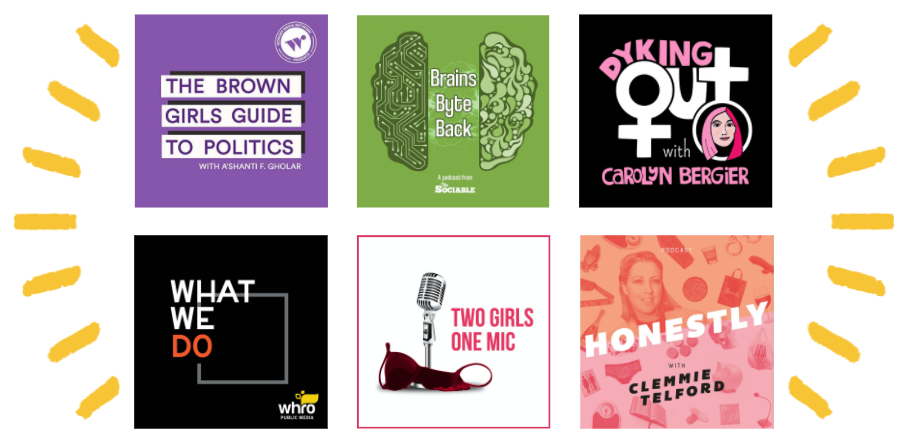
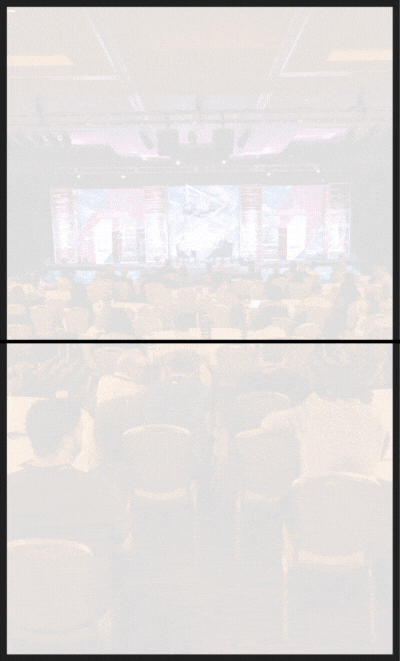


Join the Movement